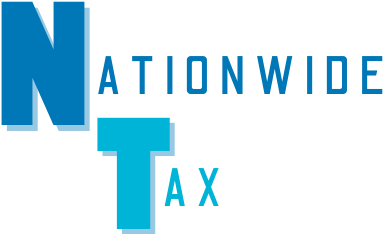Introduction
Bookkeeping is an essential part of managing your finances, whether you’re a small business owner or an individual. It involves recording and organizing your financial transactions, ensuring that your financial statements are accurate and up to date. However, bookkeeping can be time-consuming and complex, especially if you’re not familiar with accounting principles and software.
While you may be tempted to handle your bookkeeping yourself to save money, hiring a professional bookkeeper can actually save you time, money, and headaches in the long run. But how much should you pay someone to do your bookkeeping? In this article, we’ll explore the factors that influence bookkeeping costs and help you determine a fair price for bookkeeping services.
Table of Contents
- Factors that influence bookkeeping costs
- Hourly rates vs. fixed monthly fees
- What should you expect from a bookkeeping service?
- Key takeaways
- FAQs
- Conclusion
Factors that influence bookkeeping costs
The cost of bookkeeping services can vary depending on several factors:
- Business size: The size and complexity of your business will impact the amount of work required for bookkeeping. Larger businesses with multiple transactions and accounts may require more time and expertise, resulting in higher costs.
- Transaction volume: The number of financial transactions your business has on a regular basis can affect bookkeeping costs. More transactions mean more data entry and analysis, which can increase the time and effort required.
- Industry-specific requirements: Certain industries, such as healthcare or construction, may have unique bookkeeping requirements that can impact the cost. Bookkeepers with specialized knowledge and experience in your industry may charge higher rates.
- Software and technology: The bookkeeping software and tools used by the bookkeeper can also influence the cost. If you’re using a specific software that requires expertise, the bookkeeper may charge more for their services.
- Location: Bookkeeping rates can vary depending on your geographic location. Bookkeepers in larger cities or regions with a higher cost of living may charge higher rates compared to those in smaller towns.
Hourly rates vs. fixed monthly fees
Bookkeeping fees can be structured in different ways, including hourly rates or fixed monthly fees. The pricing structure that works best for you will depend on your specific needs and budget.
Hourly rates: Some bookkeepers charge an hourly rate for their services. This can be a good option if you have a small volume of transactions or if you only need occasional bookkeeping assistance. However, keep in mind that hourly rates can add up quickly if you have complex bookkeeping needs.
Fixed monthly fees: Many bookkeepers offer fixed monthly fees based on the anticipated workload and the services provided. This can provide you with predictable costs and can be more cost-effective if you have a higher volume of transactions or ongoing bookkeeping needs.
What should you expect from a bookkeeping service?
When hiring a bookkeeping service, it’s important to understand what you should expect from them. Here are some key services that reputable bookkeepers should provide:
- Accurate record keeping: A bookkeeper should ensure that all your financial transactions are accurately recorded, categorized, and organized.
- Bank reconciliation: They should reconcile your bank statements with your financial records to identify any discrepancies or errors.
- Financial reporting: A bookkeeper should provide you with regular financial reports, such as income statements and balance sheets, to help you understand the financial health of your business.
- Tax preparation support: They should assist in preparing and organizing your financial records for tax purposes, making tax filing easier for you or your accountant.
- Expert advice: A good bookkeeper should be knowledgeable about accounting principles and provide you with valuable insights and advice to help you make informed financial decisions.
Key takeaways
- Bookkeeping is essential for managing your finances and ensuring accurate financial statements.
- Hiring a professional bookkeeper can save you time, money, and headaches in the long run.
- Bookkeeping costs can vary based on factors such as business size, transaction volume, industry-specific requirements, software, and location.
- You can choose between hourly rates or fixed monthly fees, depending on your needs and budget.
- Reputable bookkeepers should provide accurate record keeping, bank reconciliation, financial reporting, tax preparation support, and expert advice.
FAQs
1. Can I do my own bookkeeping?
While it’s possible to do your own bookkeeping, it’s not always recommended, especially if you lack accounting knowledge and experience. Hiring a professional bookkeeper can help ensure accuracy and save you time and effort.
2. How much should I budget for bookkeeping?
The cost of bookkeeping can vary depending on your specific needs and circumstances. It’s best to consult with bookkeeping services to get a personalized quote based on your business size, transaction volume, and other relevant factors.
3. Can bookkeeping services help with tax preparation?
Yes, many bookkeeping services can assist with tax preparation by organizing and preparing your financial records. This can help streamline the tax filing process and ensure accuracy.
Conclusion
Bookkeeping is an important aspect of financial management, and hiring a professional bookkeeper can provide you with peace of mind knowing that your financial records are accurate and up to date. The cost of bookkeeping services can vary based on factors such as business size, transaction volume, industry-specific requirements, software, and location. By understanding your specific needs and budget, you can determine whether hourly rates or fixed monthly fees are more suitable for you. Remember to choose a reputable bookkeeping service that offers the key services you need, such as accurate record keeping, bank reconciliation, financial reporting, tax preparation support, and expert advice.
